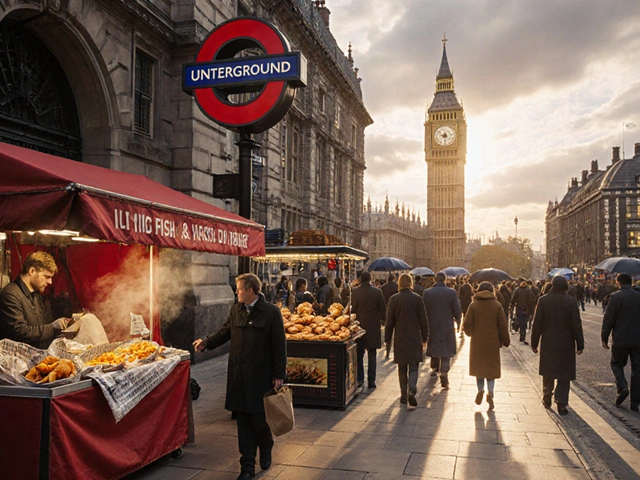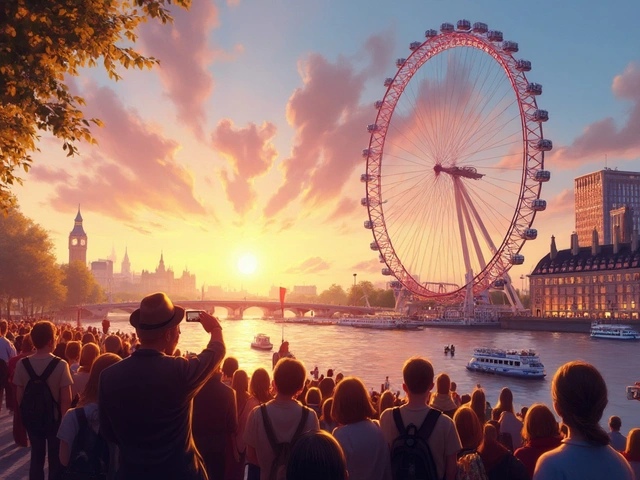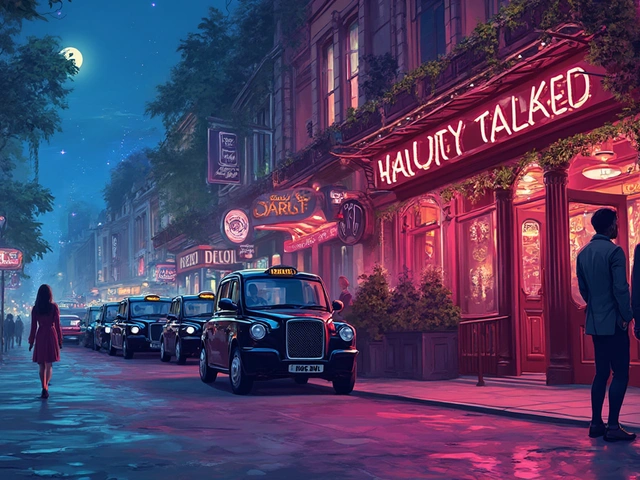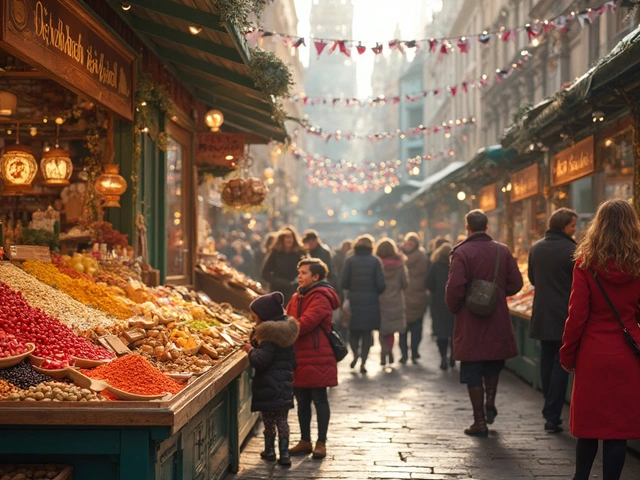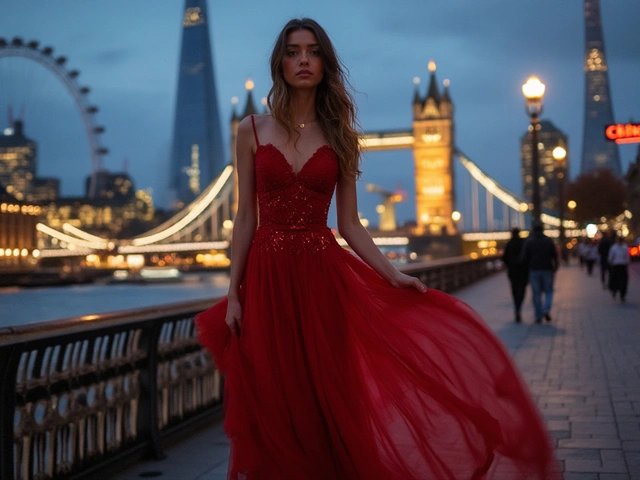
You’ve probably heard the rumors: Manchester’s got more bars than London. Or maybe Edinburgh’s the real nightlife capital. But here’s the truth-none of those cities are #1. The city with the most bars in the UK isn’t even in the top five most talked-about nightlife spots. And if you’re planning a bar-hopping trip, you’re going to want to know where it actually is.
The City with the Most Bars in the UK
It’s London. Not Manchester. Not Bristol. Not even Leeds. London has over 5,700 licensed bars, pubs, and nightclubs as of 2025, according to the British Beer and Pub Association. That’s more than the next three cities combined. And it’s not even close. The second-place city, Manchester, clocks in at around 1,800. London doesn’t just lead-it dominates.
Why? Because London isn’t just a city. It’s a global hub with 330+ neighborhoods, each with its own drinking culture. From the historic gin palaces of Soho to the hidden speakeasies of Shoreditch, from the Irish pubs of Camden to the rooftop cocktail lounges of Canary Wharf-there’s a bar for every mood, budget, and midnight craving.
Why London Has So Many Bars
It’s not magic. It’s math. London has over 9 million people living in the metropolitan area. That’s more than the entire population of Scotland. More people means more demand. More tourists-nearly 21 million in 2024-means more businesses open to serve them.
Also, London’s licensing laws are uniquely flexible. Unlike cities in the UK where local councils tightly control bar openings, London’s system allows for faster approvals, especially in high-footfall areas. A single street in Vauxhall might have five different bars under one roof-each with a different vibe: karaoke, whiskey tasting, craft beer, cocktails, and late-night pizza.
And let’s not forget the economic engine. The UK’s hospitality sector added £130 billion to the economy in 2024. London alone accounts for nearly half of that. Bars aren’t just social spots-they’re jobs, tax revenue, and cultural landmarks.
Bar Density: Where the Action Is
But numbers don’t tell the whole story. What if you care about how many bars per square mile? That’s where things get interesting.
While London has the most bars overall, Camden has the highest bar density in the UK. A single 1.5-mile stretch between Camden Town and Kentish Town has over 120 licensed venues. That’s roughly one bar every 40 meters. Walk down Camden High Street after 8 p.m., and you’ll pass a pub, then a cocktail lounge, then a live music pub, then a karaoke bar-all within a two-minute stroll.
Other hotspots:
- Soho (West End): 80+ bars in under 0.5 square miles. Home to LGBTQ+ nightlife, jazz clubs, and late-night bites.
- Shoreditch (East London): 65+ bars, mostly craft beer and cocktail-focused. Think neon signs, vinyl playlists, and no dress code.
- Leeds City Centre: 45+ bars in a compact walkable zone. Popular with students and young professionals.
- Manchester Northern Quarter: 50+ bars packed into a historic warehouse district. Indie vibes, live music, and cheap pints.
So if you want volume, go to London. If you want density, hit Camden. Both deliver.
Types of Bars You’ll Find in London
London’s bar scene isn’t one-size-fits-all. It’s a mosaic. Here’s what you’ll actually find on the ground:
- Traditional Pubs: Think oak beams, dartboards, and real ale. The Spaniards Inn in Hampstead (est. 1585) still serves ale the same way it did in the 1700s.
- Speakeasies: Hidden behind bookshelves or unmarked doors. The Blind Pig in Fitzrovia requires a password-but it’s worth it for their bourbon flights.
- Roof Gardens: The Rooftop at The Standard in King’s Cross gives you skyline views and a cocktail menu that changes monthly.
- Themed Bars: From a bar where you drink in the dark (Dans Le Noir) to a pub that only serves drinks in retro 80s cans (The Retro Bar in Brixton).
- Bar-Clubs: Places like Fabric and Printworks start as bars at 8 p.m. and turn into world-class clubs by midnight.
You won’t find this kind of variety anywhere else in the UK. Even cities like Glasgow or Birmingham have great scenes-but they’re narrower. London has everything, all at once.

How to Find the Best Bars in London
With 5,700 options, where do you even start?
Here’s how real locals do it:
- Use Untappd or The Bar Finder app: These show real-time check-ins and ratings. Look for bars with 4.5+ stars and over 500 reviews.
- Follow local Instagram accounts: Try @londonbars, @drinklondon, or @thebarhopper. They post daily updates on new openings, happy hours, and pop-ups.
- Ask the bar staff: If you’re in a pub and ask, “Where’s your favorite spot nearby?” you’ll often get a personal recommendation. Most bartenders know the scene better than any guidebook.
- Walk and explore: The best bars aren’t always the most famous ones. Turn down a side street in Peckham or Brixton-you might stumble on a hidden gem with live jazz and £4 pints.
Pro tip: Avoid places with “2-for-1” signs on main tourist streets. Those are usually overpriced and packed with visitors who don’t know any better.
What to Expect When You Go Out
London’s bar scene is split by time, mood, and money.
Early evening (5-8 p.m.): Think cozy pubs with staff chatting with regulars. It’s quiet. You’ll get a seat. Try a local cider or a pint of London Pride.
Evening (8-11 p.m.): This is when the buzz kicks in. Cocktails are flowing. Live music starts. Bars fill up. This is prime time for socializing.
Late night (11 p.m.-2 a.m.): The real nightlife begins. Clubs open. DJs spin. Bars stay open past 2 a.m. in zones like Soho and Shoreditch. Some places, like Bar 21 in Islington, don’t close until 5 a.m.
Don’t be surprised if you’re asked for ID-even if you look 30. UK law is strict. Always carry a passport or driving license.
Bar Prices in London: What You’ll Pay
Let’s be real-London isn’t cheap. But prices vary wildly.
| Bar Type | Pint of Lager | Cocktail | Whiskey Shot | Happy Hour Discount |
|---|---|---|---|---|
| Traditional Pub (Outer Zone) | £4.50-£5.50 | £8-£10 | £4-£5 | Yes, 5-8 p.m. |
| Central London Pub | £6-£7.50 | £10-£13 | £5-£7 | Some, 4-7 p.m. |
| Craft Beer Bar | £6-£8 | £12-£16 | £6-£8 | Often, 3-6 p.m. |
| Luxury Cocktail Lounge | £8-£10 | £15-£25 | £8-£12 | Rare |
Want to save money? Go early. Happy hours are your friend. Or grab a drink in a pub outside Zone 1-places like Brixton, Hackney, or Walthamstow serve the same quality drinks for 20-30% less.

Bar Safety Tips for Visitors
London is generally safe-but bars can get crowded, and late-night streets can be unpredictable.
- Never leave your drink unattended. Even in a quiet pub.
- Use licensed taxis or the Tube after 1 a.m. Avoid walking alone in areas like Elephant & Castle or New Cross after dark.
- Keep your phone charged. Use Google Maps to track your route back.
- Don’t flash cash or expensive jewelry. Pickpockets target crowded bars.
- Know your limits. London’s alcohol tolerance is high, but so are drink strengths. A “standard” cocktail here might have 3 shots.
Most bars have security staff on duty. If you feel uncomfortable, speak to them. They’re there to help.
London vs. Manchester: The Bar Battle
People love to pit London against Manchester. Here’s the real breakdown:
| Factor | London | Manchester |
|---|---|---|
| Total Bars | 5,700+ | 1,800 |
| Bar Density (per sq mi) | High in Camden, Soho | High in Northern Quarter |
| Price Range | £4.50-£25+ | £3.50-£16 |
| Opening Hours | Many until 2-5 a.m. | Most close at 1 a.m. |
| Music & Culture | Global, diverse, ever-changing | Rock, indie, electronic focus |
| Best For | Everything. All tastes. All budgets. | Authentic, affordable, local vibe |
Manchester wins on affordability and community feel. But London wins on sheer scale and variety. If you want one city that does it all-London is the answer.
Frequently Asked Questions
Is London the city with the most pubs or bars in the UK?
Yes. London has over 5,700 licensed drinking venues, including pubs, bars, clubs, and lounges. That’s more than any other UK city by a wide margin. Manchester comes second with around 1,800.
What’s the bar with the most history in London?
The Spaniards Inn in Hampstead, opened in 1585, is one of the oldest continuously operating pubs in London. It’s famously linked to highwaymen and Charles Dickens, who wrote about it in his novels.
Are there any bars in London that stay open all night?
Yes. Bars like Bar 21 in Islington, The Jazz Cafe in Camden, and some venues in Soho stay open until 5 a.m. or later on weekends. Clubs like Fabric and Printworks often run until 6 a.m.
Is it cheaper to drink in Manchester than London?
Generally, yes. A pint of lager in Manchester averages £3.50-£5, while in central London it’s £6-£8. Cocktails are also 20-40% cheaper in Manchester. But London offers more variety and longer hours.
Which London neighborhood has the best bar scene?
It depends on what you want. Camden for live music and indie vibes. Shoreditch for craft beer and cocktails. Soho for diversity and late-night energy. Peckham for hidden gems and low prices. Each has its own personality.
Final Thought
If you’re asking which UK city has the most bars, the answer isn’t just a number-it’s a feeling. London doesn’t just have more bars. It has more types of bars. More stories. More music. More people from every corner of the world, raising a glass together.
So next time someone says Manchester or Edinburgh is the real nightlife capital, smile. They’re right about one thing: those cities are amazing. But if you want the full spectrum of what a UK bar scene can be-London is the only place that delivers it all.

